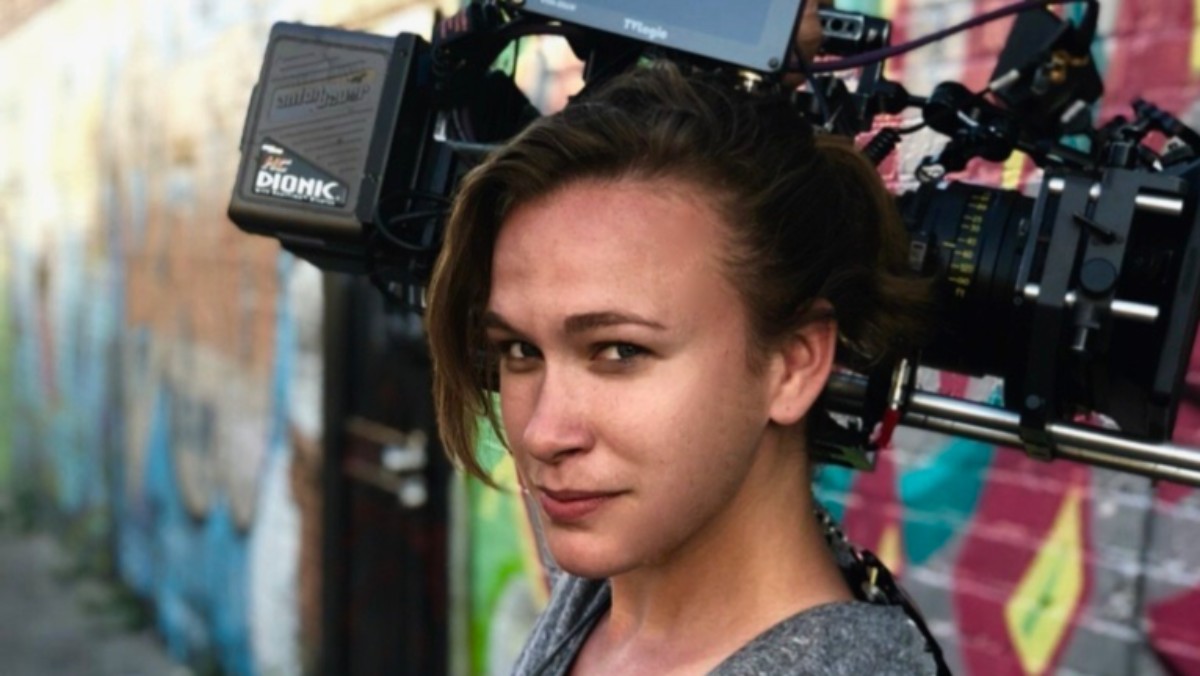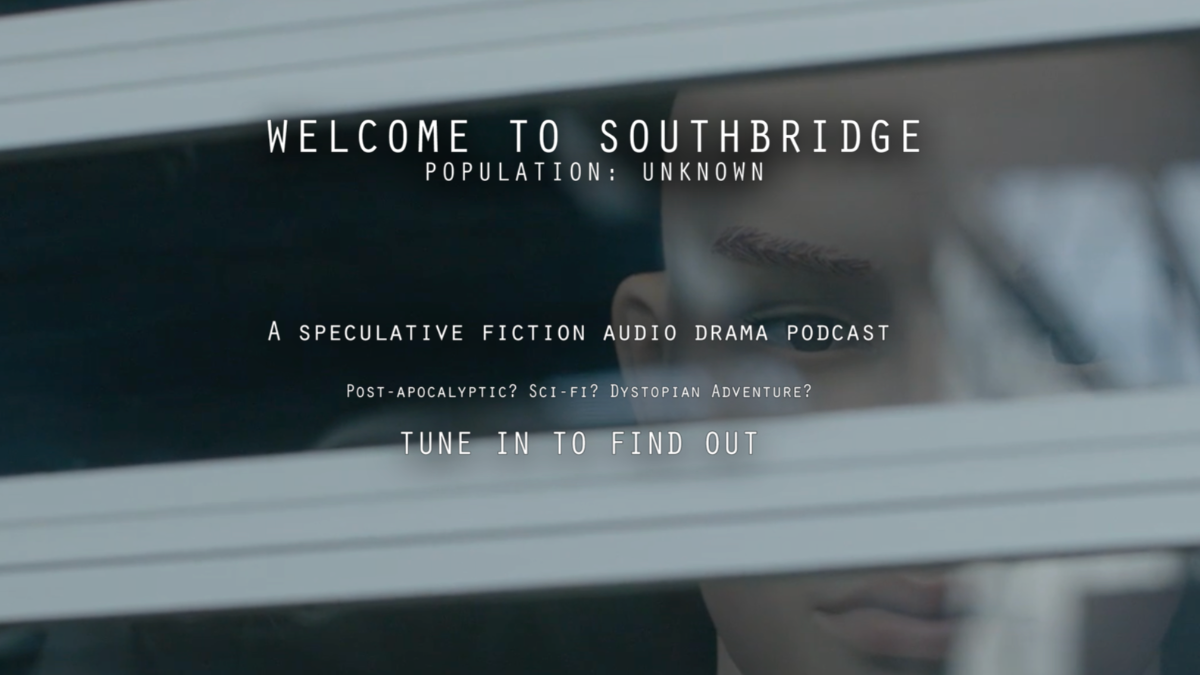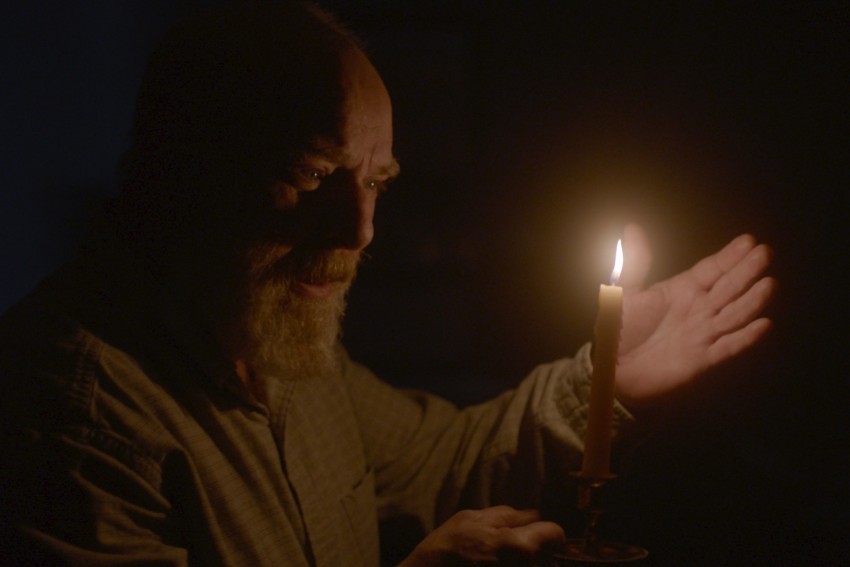
Society increasingly relies on technology, but people oftentimes fail to consider the hidden consequences. Writer-Director Tiffany Murray calls attention to this social dilemma through her sci-fi adventure podcast series, Southbridge, which is now available on Spotify and other platforms.
Synopsis: In a dystopian world ruled by technology, the eight-episode tale takes place in the year 2050 when reality television has covertly become a form of societal control. The storyline follows a group of unknowing stars of an apocalyptic series who must band together to escape the show with their lives and lead the rebellion fight against an oppressive reality.
Southbridge was inspired by Tiffany’s desire to craft a genre-driven adventure that also serves as social commentary on the media’s influence over people’s lives. The podcast also sheds light on the overlooked struggles of working in the entertainment industry and explores the dangers that could transpire when the wrong people are in positions of authority.
Watch the official Trailer for Southbridgedirected by Tiffany Murray
Currently, in New York, Tiffany graduated from Middle Tennessee State University with a degree in Film Production. She is no stranger to the industry, having gained attention for directing the award-winning short films: No Cleaner Threads, Handle With Care, and the internationally recognized After The March. She also partnered with Panasonic for the docu short, Backbone, and the mini-doc series, Run Your Race. More recently, she worked behind the camera for the TBS comedy series, Miracle Workers, and the Saban Films horror feature, So Cold The River.
Tiffany has been developing Southbridge since its inception in 2017 during the filming of her Amazon Prime post-apocalyptic award-winning dramatic short, I’ll Be Here.
indieactivity: Briefly explain the premise of your new podcast series Southbridge?
Tiffany Murray (TM): Southbridge is an audio drama series that begins as an apocalyptic adventure, but as the story unfolds, we reveal that reality isn’t what it seems and the world our heroes live in has been manufactured for the sake of outsider entertainment. It’s a commentary on media and technology’s influence on society and what could happen if power got into the wrong hands.

Why did you want to tell this story?
Tiffany Murray (TM): I’ve spent ten-plus years immersed in the entertainment industry, and though I believe there are many good people doing great things, there’s plenty of the opposite too. As a crew, we’re constantly asked to dedicate our lives to the business, while destroying our physical, mental, and emotional well-being for the sake of the project. After removing myself from this toxic cycle, I realized that this apocalyptic script I’d been toying with for about two years was about so much more than just ‘big brother watching.’ It highlights a broken system and the public’s blind eye toward it because people think, ‘if it’s popular, they must be doing something right.’ In reality, it’s often the most popular entertainment where the most unsafe or abusive practices occur.
What were the first steps you took to make it happen?
Tiffany Murray (TM): While in quarantine, I desperately needed something creative to fill my time, so I dove in on this sci-fi idea I had been toying with. Once I had revised the 230-page script enough, I reached out to my favorite creative partner, Amy Kersten, to see if she would embark on this journey with me. Neither of us knew what we were getting ourselves into, but she agreed to help me figure it out. The next step was a sound designer and after a few conversations with Seth Kays, it was clear he was the perfect addition to our team. Cast and music were a whole other step, but between the three of us, we were confident we could pull this beast of a project off, and now we have!

Anything you wish you could “do-over” on the project?
Tiffany Murray (TM): Recording remotely had its benefits, but if I was able to afford to record at least our leads in the same room, at the same time, I think it would’ve made things quite a bit easier on the backend. Other than that, I just wish I could pay everyone millions of dollars. Every single person involved worked so hard to make this project a reality and I’ll always be eternally grateful for them.
How were you able to balance creativity and the outside restrictions, like COVID or financial constraints?
Tiffany Murray (TM): Having access to remote work tools like Zoom was a major game-changer. Each recording session the actor, the Sound Designer, Seth, the Producer, Amy, and I would get on our computers and knock out page after page of dialogue from wherever we happened to be in the world. It’s an odd way to work, especially navigating all of our different time zones, but after a while, we started to nail down a system and it became the new normal. Everyone’s favorite phrase, right?

Will there be more episodes to come, or what’s next?
TM: We’re keeping our options open for the future of Southbridge at the moment, but all of us feel like Southbridge is such a visual story, that the excitement that we’ve produced auditorily would be exponentially multiplied if we were able to transform this into a television series. We have ideas on how we’d like season two to play out should we continue the podcast with distribution, but we’re also very excited about what a transition to television would look like and have some great ideas on how to keep things fresh for our fans.
How did you get into the business?
TM: I’ve always had a love for cameras and photography, but I wanted to work with a team versus being the sole creator of an image. After volunteering on a film set during my freshman year of college, I knew that this type of collaborative storytelling was the thing for me. I never put two and two together that it took a village to create films. Everyone comes together and contributes their own special talents to the project in order to create something incredibly unique and wonderful. It’s a beautiful process, really. As far as podcasting goes, I never thought I would find myself in this world, but having a safe, COVID-friendly way to work with other creatives throughout quarantine was a literal lifesaver.

What types of stories are you interested in telling as a creator?
TM: When I first started in the industry, I just wanted to create ‘cool-looking’ things, but after getting to work on projects that were not only ‘cool-looking,’ but also made a statement or had a larger purpose, things shifted. Film, along with audio entertainment, can be such an impactful medium when done well and I can’t think of a better way to spend my career than helping tell important stories and hopefully making a difference.
Any tips for others looking to create their own projects?
TM: Surround yourself with people more talented than you. There’s a stigma in this industry that being a director means you have to know everything and be better than everyone. The truth is, creative storytelling is a team effort, and the more talented people you have on your team, the better you’re all going to make each other.
What do you want to change most about the entertainment industry?
TM: The entertainment industry is a business just like any other, but the way we’ve slipped into this habit of paying off crews until they’re happy instead of avoiding abusing them in the first place is unacceptable. Crew members should be able to have a life outside of work, see their families, and enjoy their time off instead of spending their weekends working even more or lying limp in bed recovering from the previous week’s injuries. I’d love to see a world in which producers and studios are willing to schedule shorter and more manageable days and weeks. They might think it’ll cost more money, but when your crew is happy and feels respected, they’ll work ten times as hard, guaranteed. I’ve tested it.
Who is your creative idol and what do you love about their work?
TM: I try not to idolize people because I’ve found that what the public knows about them and who they really are can be vastly different. As much as I try, separating the work from the person gets harder and harder the longer I’m in the industry.
Tell us what you think of the interview with Tiffany Murray. What do you think of it? What ideas did you get? Do you have any suggestions? Or did it help you? Let’s have your comments below and/or on Facebook or Twitter.
Follow Tiffany Murray on Social Media
Website
Linktree
Facebook
Twitter
Instagram
Richard Green Documentary, ‘I Know Catherine, The Log Lady’: Premiere in NYC, LA May 9th
Lynchian Doc I Know Catherine, The Log Lady Makes Hollywood Premiere 4/17, Rollout to Follow
In Camera by Naqqash Khlalid Launch on VOD April 29
Naqqash Khlalid’s Directs Nabhan Rizwan. In Camera stars an EE BAFTA Rising Star Award Nominee.
2025 Philip K. Dick Sci-Fi Film Festival Award Winners Announced
Vanessa Ly’s Memories of the Future Awarded Best PKD Feature
Dreaming of You by Jack McCafferty Debuts VOD & DVD for April Release
Freestyle Acquires “Dreaming of You” for April 15th Release
Hello Stranger by Paul Raschid set for London Games Festival & BIFFF
The film Is set for an April 10th Premiere at The Genesis Cinema in London (LGF) and BIFFF
Daydreamers Official Trailer by Timothy Linh Bui: Released by Dark Star Pictures
Daydreamers Vietnamese Vampire Thriller – May 2nd release









